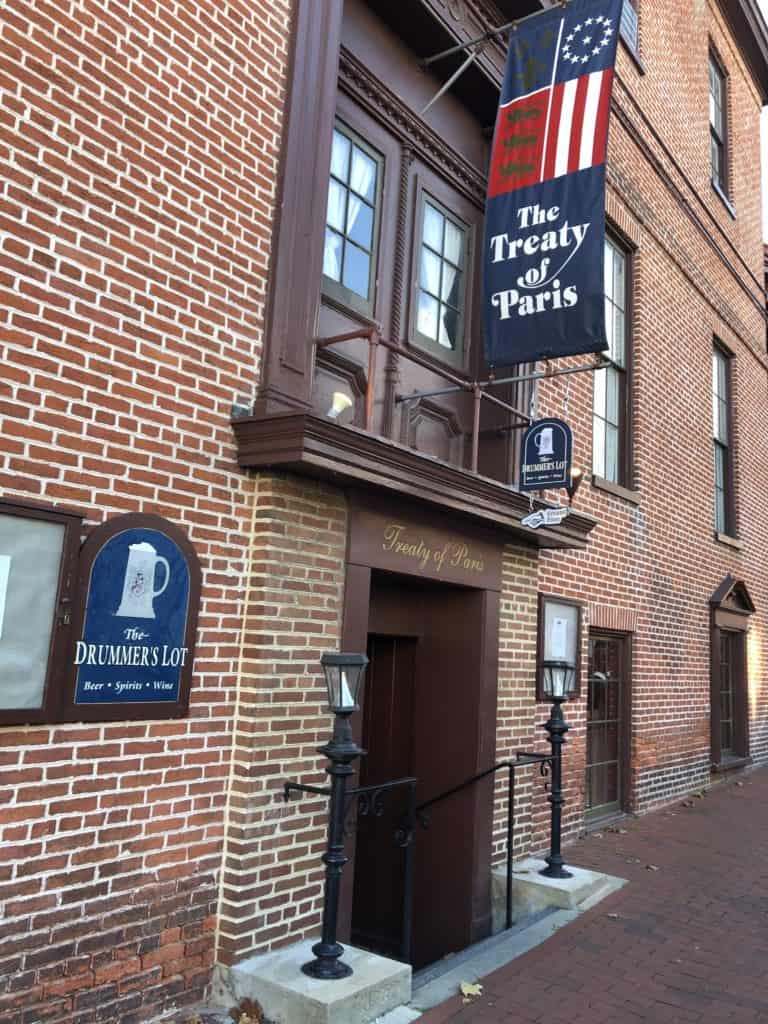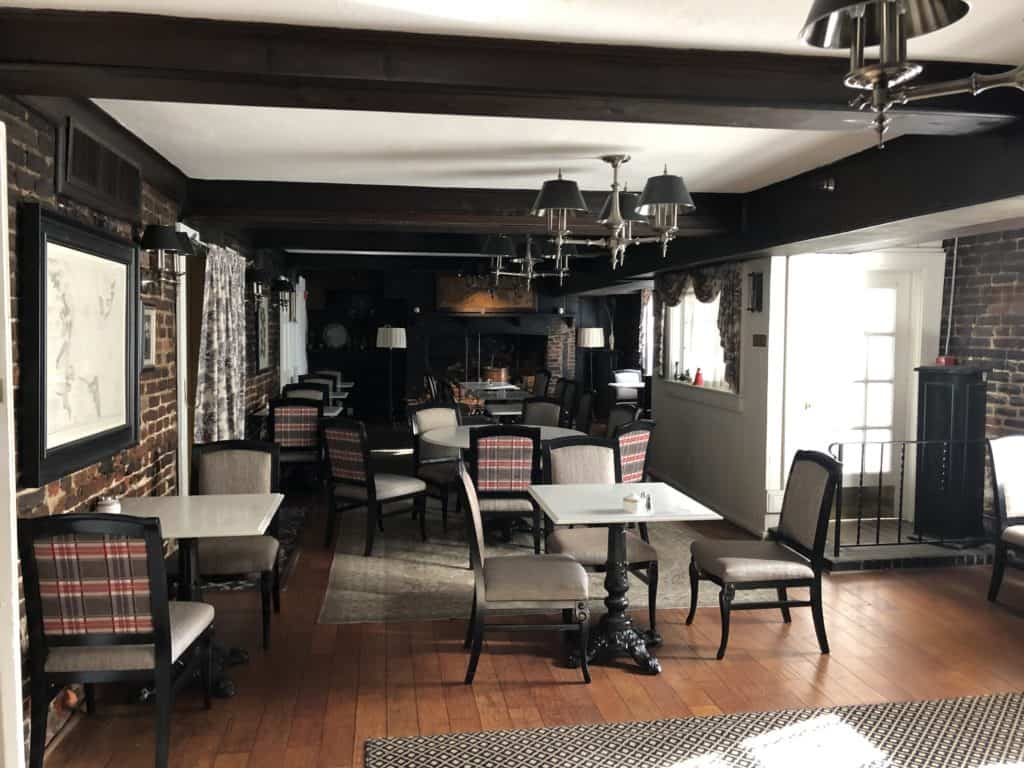According to a notice posted outside its doors on December 9, 2019, the historic Annapolis Treaty of Paris Restaurant has closed and will not re-open.
The cozy, white-tablecloth restaurant, located inside the Maryland Inn at the top of Main Street, dates back to the 1780s.
Its sudden closure will impact the lives of staff members who unexpectedly lost their jobs; Maryland Inn guests who will no longer have an in-house breakfast, lunch, or dinner option; and diners who visited the restaurant for weeknights, special occasions, or, as this writer did as a boy, elegant Thanksgiving day buffets filled with famous Treaty of Paris popovers.
But the historical significance of the closing is far greater. Glenn Campbell, senior historian at Historic Annapolis, says the restaurant, then called The King of France Tavern, was a backdrop to the founding of America.
Remember, from 1783 to 1784, Annapolis was the United States capital, and the Treaty of Paris was ratified in the Maryland State House (still under construction) on January 14, 1784.
In the shadow of the State House, those at the inn and tavern were probably among the first Americans to learn the Treaty of Paris had been finalized, officially ending the Revolutionary War.

The Annapolis Land Company re-named the restaurant in honor of that famous document when they bought it in 1968, to keep history alive for local visitors.
Today, with the Treaty of Paris restaurant now closed, the space will still be available for private events, and the public can look around at the historical space, “when the door off of Main Street is unlocked,” as Banquet Captain Cruz Baker confirms to Bay Bulletin.
The onsite bar, the Drummer’s Lot, will remain open, serving drinks Tuesday through Saturday starting at 5:30 pm, according to the posted notice. And the Maryland Inn, which according to the Maryland Historical Trust is the last 18th-century Annapolis inn still in operation since the 1780s, will continue to operate as usual.
-Steve Adams




